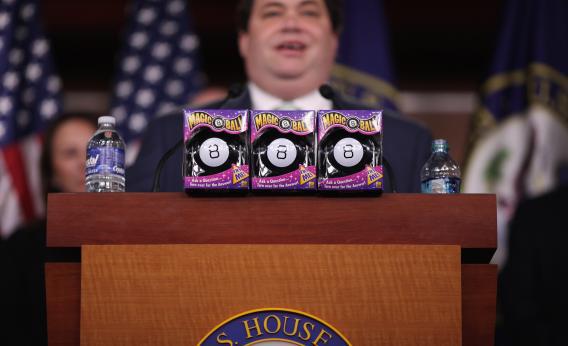A news station in Indiana reports on a “$30 million construction project” stalled by sequestration. The Winston-Salem Journal reports on an FAA tower’s closure. The Cincinatti Enquirer goes long on the industries that fear the ax.
These are among the fifty-odd stories Democrats have pinged me about to highlight how sequestration is actually playing at home. The party has a mounting problem: In Washington, sequestration is covered as alternately 1) not a big deal or 2) a non-big deal that the president is fibbing about. The Washington Post’s Fact Checker column has made casserole out of White House claims about fired janitors (four Pinnochios!) and canceled vaccinations (two Pinnochios!).
By now, you might have expected some Republicans to fret about sequestration hurting their districts. Nope! The argument these days is that the White House is bluffing and won’t give flexibility to agencies to move money around—an idea that required a new bill, one that didn’t pass the Senate.
“If I were told I had to cut 3 percent from my personal budget,” said Texas Rep. Blake Farenthold, “I could choose not to pay my mortgage and then scream about being homeless!”
At a briefing at the Heritage Foundation, freshman North Carolina Rep. Mark Meadows couldn’t name a constituent or agency screaming about cuts. “I’ve talked to a lot of agencies in these districts, and they’ve said that given the tools they can manage these cuts,” he said. “I am concerned about my district. Obviously, I’m elected to represent that district. But this isn’t just about my district. When you look at how, in the last four years, we’ve increased the number of attorneys by 20 percent in government, that doesn’t do anything to cut waste.”
Both Farenthold and Meadows represent safe districts now; the former’s was shored up in 2011, the latter’s was changed from a swing seat to a safe seat that year. They’re pretty representative of Republicans who now say the sequestration problem is totally fixable if the government just accepts the lower spending levels. They have company, as the article I cited from the North Carolina paper tells us:
Mark Davidson, director of Smith Reynolds, said, ‘I am disappointed. I understand we need to rein in federal spending, but I think the cuts could have been made elsewhere with the FAA’s massive budget.’”
